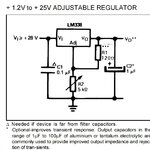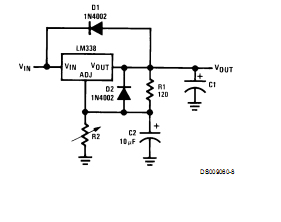bignose
Newbie level 3
Hi,
I built a little battery pack in a .50 cal machine gun ammo container. Its 3 6amp hour 12v batteries with a charge controller, a switch and a 30 amp fuse. I charge it with about 8 sq feet of solar panels.
It works fine for running things like motors or lights. (A small fan for example), however when I put a 12v to 110v inverter on it, it tends to fry the inverter.
I've checked for shorts etc.
Tips?
I can provide wiring diagrams if necessary.
I built a little battery pack in a .50 cal machine gun ammo container. Its 3 6amp hour 12v batteries with a charge controller, a switch and a 30 amp fuse. I charge it with about 8 sq feet of solar panels.
It works fine for running things like motors or lights. (A small fan for example), however when I put a 12v to 110v inverter on it, it tends to fry the inverter.
I've checked for shorts etc.
Tips?
I can provide wiring diagrams if necessary.

